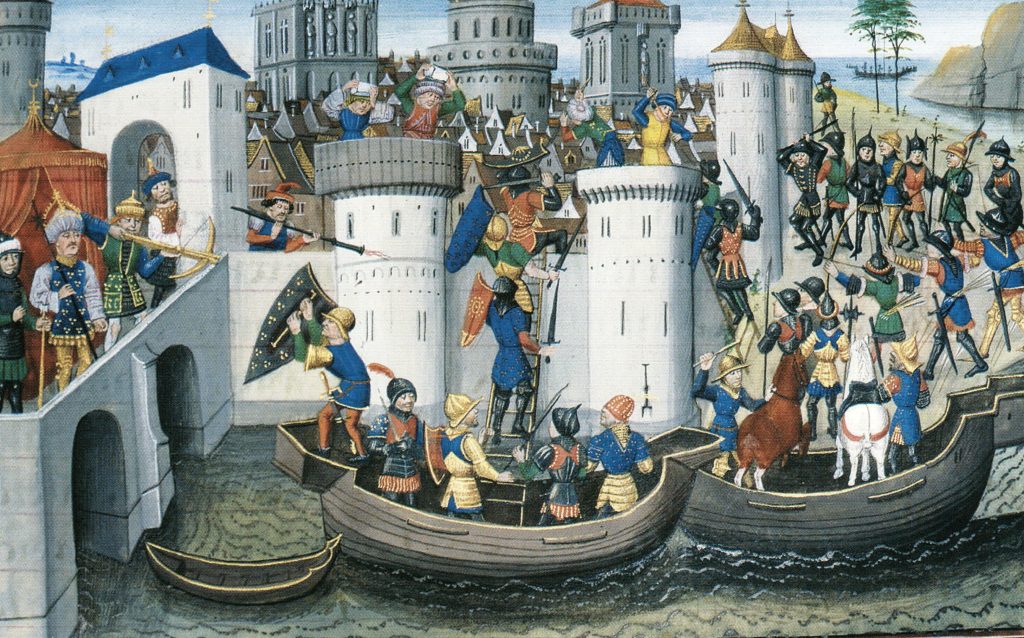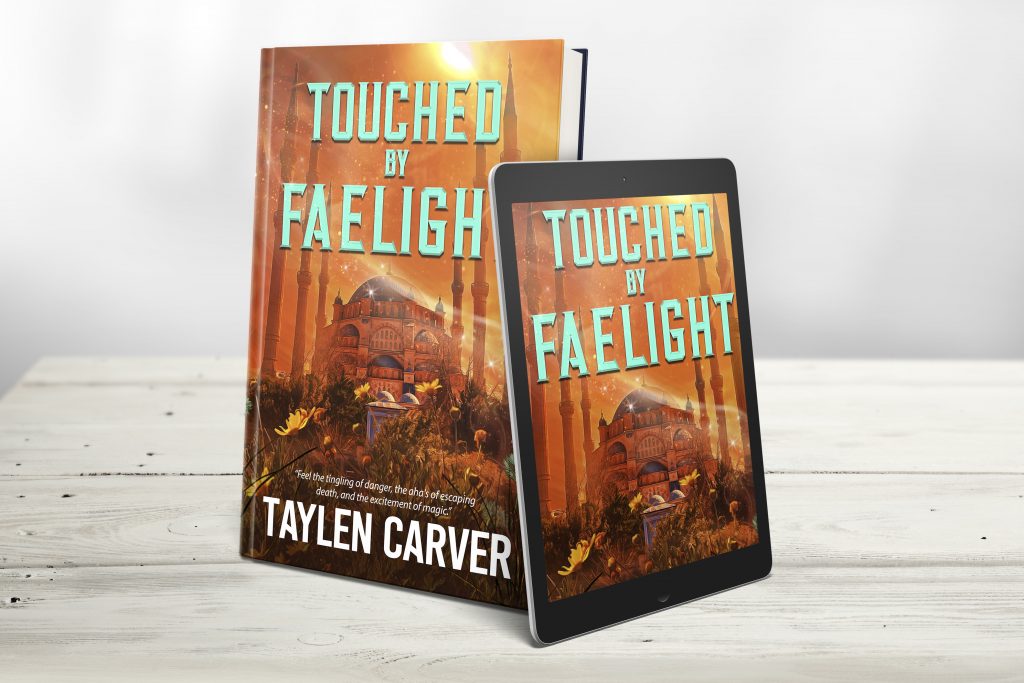
Today marks the 819 anniversary of the fall of Constantinople to the Crusaders of the Fourth Crusade, which temporarily ended the Byzantine Empire in 1204.
The attack of Constantinople was a political strategy driven mostly by the new Republic of Venice. Constantinople was the greatest city in the world at that time, measured by both population and the river of money flowing through it.
It was also a beautiful city, designed to reflect its ancient Roman roots.
It was this grandeur and wealth that turned the Republic of Venice’s eye upon it. With the call of the pope to march upon Jerusalem in the Fourth Crusade, the leaders of the Crusade found reasons to also march upon Constantinople. Their intention was to place their own puppet king upon the throne, so they could control the city and its wealth.
The city was home to over 500,000 people protected by thirteen miles of triple walls. The walls did not fall, and would not fall until centuries later, when gunpowder was invented. But the city was taken over by the Crusaders through siege and by scaling the walls and burning the city. The sacking of Constantinople in 1204 was marked in history as a particularly brutal event.
The Byzantine empire was divided among its conquerors, but their victory was short lived. Emperor Michael VIII Palaiologos reclaimed the Byzantine throne in 1261.

I find the history of Constantinople fascinating. The city endured from 330 through to 1930, when it was renamed Istanbul. It still remains the largest city in Europe.
Like Rome, Constantinople has a very long and rich history, and I often find it a unique setting for stories.
A good example of that is Touched by Faelight. The editor of the anthology in which it first was published requested stories set in exotic and unusual places. So I turned to Constantinople/Istanbul as the perfect setting.
That ended up being a fortuitous decision, for the story built itself after that. The city and its European/Asian division, the culture, and the ancient history formed a unique story setting that in turn shaped the war between the fae.
But history is useful that way, which is why I like it.
Taylen